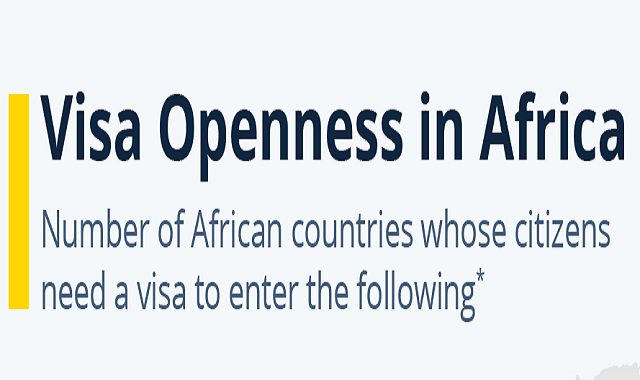When we talk about visa openness and easy travel for African
citizens, the most open countries in Africa to list are The Gambia, Benin, and
Seychelles. According to the 2022 Africa Visa Openness Report, the three countries
do not require a visa from citizens from any country on the continent. In contrast
to these countries are Egypt and Sudan, as they rank on the last spots of the
list and require a visa from citizens from all other countries.
Out of 54, 36 of African countries have improved or
maintained their visa openness score since 2016 making Intra-continental travel
an ease for African citizens. Partial appreciation is for the start of acceptance
of e-visas, growing from 9 countries offering the service in 2016 (when the
first report was published) to 24 nations, including South Africa and Morocco,
according to last years’ list.
Regionally, West Africa counted the major share of top-performing countries in 2022, with 40 percent (8 countries) of all the top performers, while only one North African country and zero Central African countries appeared in the list of top 20.
Lower-income countries are also more likely to have agreed on
progressive policies as they reassure ease of movement, with eighteen of the 20
best performing countries in 2022 being either low-income or
lower-middle-income economies. Non-coastal countries were also mostly among the
better performing ones.
Visa application procedures can be pricey and very time consuming. They can be a hurdle to travel around the continent that impacts not only tourism but, also limits the options for higher studies, as well as areas for trade and business development. For these purposes, on behalf of the African Union and African Development Bank Group, the writers of the report, are making efforts to make a visa on arrival the standard and not an exception. There are more suggestions that include the implementation of e-visas more broadly, to create regional bloc visas, to offer longer term visas for regular and repeat travelers, and to make simpler the visa process by taking down fees and requiring fewer documents. The authors also support recommendations such as a regional passport or national identity card, an African passport for business people, or The African Union passport that will be for all African citizens.
Marie-Laure Akin-Olugbade, Acting Vice President, Regional
Development, Integration and Business Delivery African Development Bank,
explains that freedom of movement is more than an economic issue:
“It also promotes social cohesion and improves African citizens' quality of life.”
According to a 2017 article for the Africa Renewal extension
of the United Nations website, possible reasons that the concept of a visa-free
Africa has not caught on in several countries is because there is a fear of rise
in harmful activities such as smuggling, illegal immigration, terrorism and the
spread of disease as well as a negative impact on local job markets.


